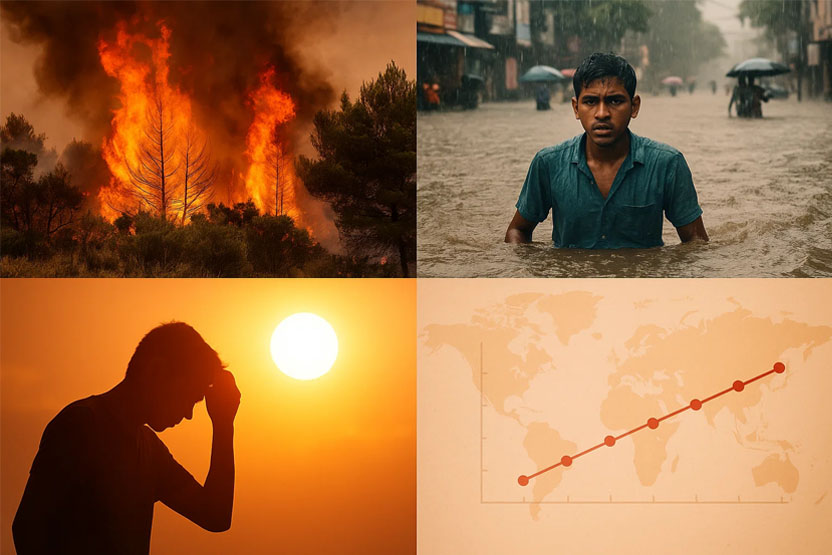
A
new study has revealed that people's support for climate policies increases significantly when they personally experience or witness extreme weather events, such as heatwaves, wildfires, and floods. The study, titled " Extreme weather event attribution predicts climate policy support across the world" was published in the journal Nature and surveyed over 71,000 individuals across 68 countries.
Researchers found that when citizens make a connection between the weather events they live through and climate change, they are more likely to support climate policies. In particular, countries frequently affected by wildfires showed the highest levels of support for ambitious climate actions. According to the authors, the visible damage and health risks posed by wildfires make the link to climate change more tangible in the public mind.
In contrast, heavy rainfall did not provoke the same level of support. The study attributes this to the fact that such events are less commonly associated with climate change in public perception, even though science clearly identifies the connection.
Popular and Controversial Measures
Among the five types of climate policies assessed, forest and wilderness protection and expanding sustainable energy use were the most popular. However, policies involving tax increases, such as carbon taxes on food products or fossil fuels, received less public support.
The study also identified several social groups as being more likely to support climate policies when they perceived a direct link between extreme weather and climate change. These included women, older individuals, those with higher levels of education and income, religious individuals, urban dwellers, and those with left-leaning or liberal political views.
One of the key findings is the importance of what researchers call "self-attribution"—the belief that a particular extreme weather event is due to climate change. This perception, rather than simply experiencing the event, was the main driver of increased support for climate policies.
The study emphasizes the urgent need for better climate communication strategies, especially in the Global South, to help citizens understand the links between extreme weather events and global warming. Events such as floods, for instance, should be more clearly explained as part of the broader context of climate change.
Future research, the authors suggest, should also systematically assess the role of self-attribution in influencing climate-related behaviors and public support for mitigation strategies.


Comment
Reply